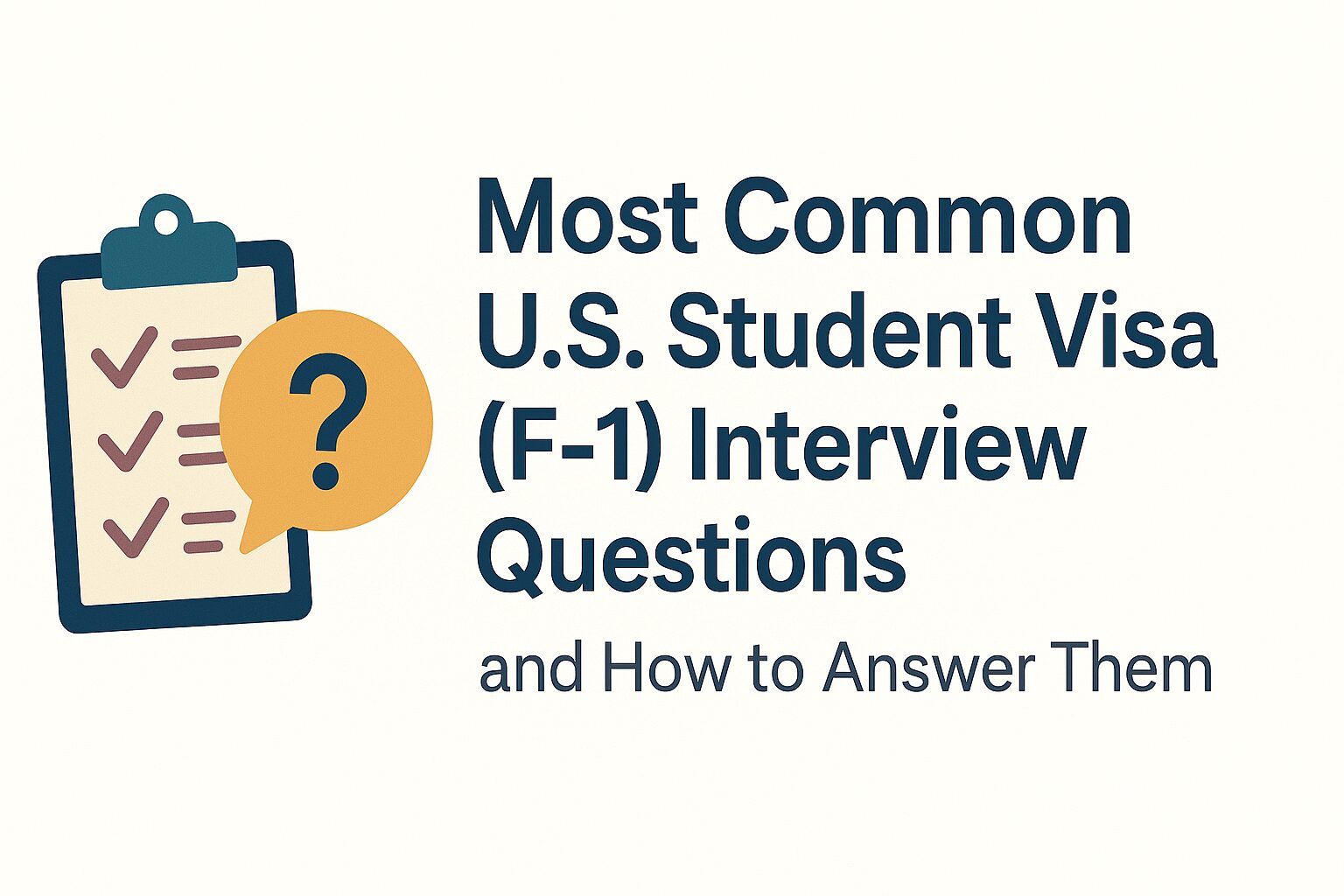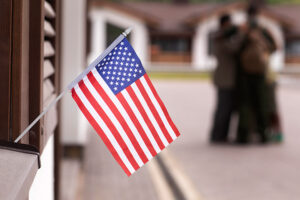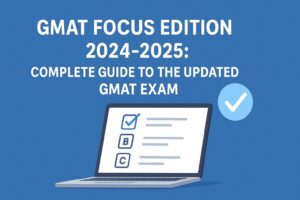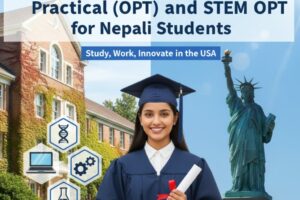Most common U.S. Student Visa (F-1) Interview Questions- And How to Answer Them

Students taking the F-1 student visa interview can feel anxious and panicked, but with the preparation and the right mindset, you can approach it with confidence. The interview is not intended to trick you or put you in an uncomfortable situation; it is just a simple way for the U.S. consular to understand who you are, what your plans are, along with financial preparation, and whether you are genuinely heading to the U.S. for your studies.
In this blog, we discuss the most common questions students are asked during their F-1 visa interviews and also share tips on how to tackle them effectively. For students planning to Study in USA from Nepal, understanding interview expectations helps align academic goals, financial preparation, and long-term plans before facing the visa officer.
What is your purpose for studying in the U.S.?
This is the question many students come across during the interview. To better answer this question, keep your answer focused on education. Explain the reasons behind choosing to study in the U.S. Take time to explore what the U.S. has to offer you and research the strength of your major in the U.S. context.
Why have you chosen not to continue your education in Nepal?
You can best tackle this answer by sharing your own experience that you have had while studying in Nepal. You can talk about the kind of curriculum that you found in the Nepalese universities or the facilities you were looking for. Or maybe this major isn’t even offered in the same way in Nepal. Just be honest about how this degree in the US will help you achieve something that you could not do as easily by studying here in Nepal.
Why do you want to study this major?
This is one of the key questions to prepare for. The visa officer wants to see whether your choice of major suits your academic background or interests and is well-connected with your long-term goals. Your answer must reflect clarity, relevance, and motivation.
To approach this, understand how your previous academic and/or professional experiences have prepared you for this field. If you are continuing in the same discipline, explain how this major will upgrade your understanding and prepare you for higher-level roles in your career. If you are switching the field, justify it with the gaps and real-world problems that made you realize the importance of this new expertise.
Use information from the university’s official website and research course curriculum to show how this program offers what you are looking for. Additionally, USEF Nepal and Education USA resources provide insights into how different majors are connected to career pathways. Try avoiding generic answers and give your answers that feel logical, personal, and career-oriented.
Why did you choose this specific university?
This is to make sure you know about your university and you are really willing to be a part of this university. Research about the unique features, like the program’s curriculum, lab facilities, ongoing research, or industry collaboration. Be in a position to talk about how the chosen university will assist you in your career goals. Refer to the university’s program brochure, departmental pages, or talk with the international office to learn more about the university.
How will you fund your studies?
You need to justify that you are financially prepared to study in the United States. Mention clearly your sponsors and how they are financially ready to pay for your education in the US. The officer may ask about the total cost of attendance and make sure you know about the breakdown of the cost (like tuition fees, living expenses, insurance, and so on). Be in a position to clearly talk about what your sponsors are doing currently and the amount they earn. The best strategy to tackle this question is to sit with your sponsors and get every possible detail of their earning sources.
What are your plans after graduation?
The officer wants to check whether you have an immigrant intent or not through this question. Be in a position to clearly talk about your professional plan in Nepal and how your degree is going to help you achieve this. You can mention your specific roles you are targeting or your entrepreneurial goals. Research about the demand for your chosen skills in Nepal’s job market using government data, employment portals, or reports from organizations like FNCCI or ILO Nepal.
Do you have any relatives in the U.S.?
Answer this truthfully. The question is not intended to disqualify you, but to understand your social ties in the U.S. Also, make sure the information you provide to the officer matches the information on your DS160.
What will make you return to Nepal after your studies?
This question needs thorough research. You should talk about your ties to Nepal, like family, property, job prospects, or business interests. Also, it should completely align with your academic and financial background. Talk realistically based on your circumstances and not sound scripted or generic. Make sure to review your SoP and career goals to speak clearly on this topic.
How many universities did you apply to?
You are completely fine if you applied to multiple universities. The key here is to demonstrate that you have made the wise decision by choosing the university that best fits your goals. Make sure you are in a position to compare all the universities that you have applied to and why other universities did not make much sense to you as much as the chosen university did.
What will you do if your visa is denied?
You should handle this question in a calm manner. Avoid showing desperation or arguing the decision. Rather, it is better to say that you will review the reasons, work on them, and reapply if necessary.
What did you mention in your DS-160 form?
Ensure you are thoroughly familiar with every detail you filled out in your DS-160, including education history, sponsor information, address, and social media handles. Discrepancies during the interview may lead to rejection. Always double-check your DS-160 before submitting it.
Have you ever posted anything politically sensitive or controversial on social media?
Since 2019, the U.S. State Department has included social media vetting as part of the visa process. Your accounts may be reviewed. Make sure your digital footprint reflects responsible and respectful use. As of June 18, 2025, you are required to keep your accounts public. Try to avoid misinformation, hate speech, or political extremism. Learn more from official updates on travel.state.gov.
Recent Updates to Be Aware Of
• DS-160 Form: You must submit the completed form before scheduling the interview. Accuracy is essential.
• Social Media Vetting: Applicants must list their social media handles and ensure transparency.
Social media profile public: Applicants must set their privacy settings of social media accounts to public.
Final Advice
Preparation is the key to success. Be well-informed, confident, and honest. Speak in a calm, respectful tone and maintain consistency between your spoken answers and submitted documents. Go through mock interviews if possible, and get feedback from counselors. At Edwise, we’re here to guide you through every step, from choosing the right university to preparing for your F1 visa interview.


